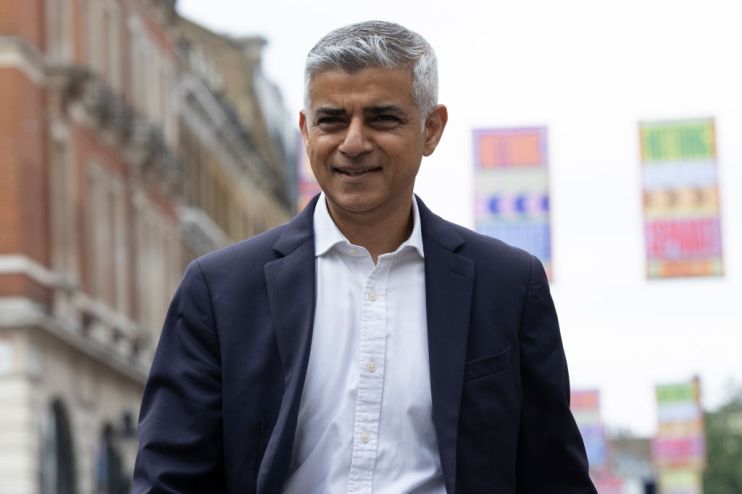Should the London Underground have dynamic pricing? Sadiq Khan is ‘mulling’ it

Sadiq Khan has confirmed he is “mulling over” dynamic pricing for London’s transport network in a bid to get more people using the Tube.
Talks are ongoing between Transport for London (TfL) and the mayor’s office to look at how pricing structures can better reflect the public’s post-pandemic travel habits, a City Hall source confirmed to City A.M.
It’s understood changes to the fare system could be brought in to improve fairness, or potentially make it more attractive to travel on certain days.
Dynamic pricing, which has been used in concert tickets sales including by US popstar Taylor Swift, sees costs rise and fall according to demand.
Speaking at a London Assembly budget setting meeting on Tuesday, deputy mayor for transport Seb Dance was asked about the measure, and said: “It’s a decision for the mayor but it’s also on the advice of TfL as well, as well as my own [advice].”
He added: “In terms of dynamic fare pricing, there are many different variations of what that looks like, and TfL has indeed been tasked with looking at various options.”
Sadiq Khan will announce next week whether TfL fares will rise in line with rail fares, which are due to increase by 4.9 per cent in March in a bid to make the railways profitable.
Tube passengers pay peak fares between 6.30am and 9.30am and from 4pm to 7pm on weekdays, with all other times charged at lower off-peak rates.
Last year, TfL fares rose by an average of 5.9 per cent.
Demand on London’s transport network continues to improve, but it remains about 90 per cent of pre-pandemic levels.
TfL does not expect passenger numbers to return to pre-pandemic levels until 2026-27.
It faced an existential funding threat during the pandemic as tourism stopped and Londoners worked from home. Fare income dropped by £3.5-4bn in 2020.
In December, Sadiq Khan confirmed a £250m cash injection by the government into transport infrastructure, making TfL’s proposals “on track to be financially sustainable”.
TfL expects to achieve its first operating surplus in 2024, of £144m, due to a combination of property income and higher fares revenue from passengers This surplus to rise to almost £500m a year by 2026-27. It will be reinvested in transport schemes.
Fares income is expected to increase by 11 per cent in 2024-25 to £5.6bn, due to a six per cent increase in demand and a five per cent rise in the amount that passengers pay, which includes a rise in fares and a crackdown on passengers skipping out on fares, according to the Evening Standard.
